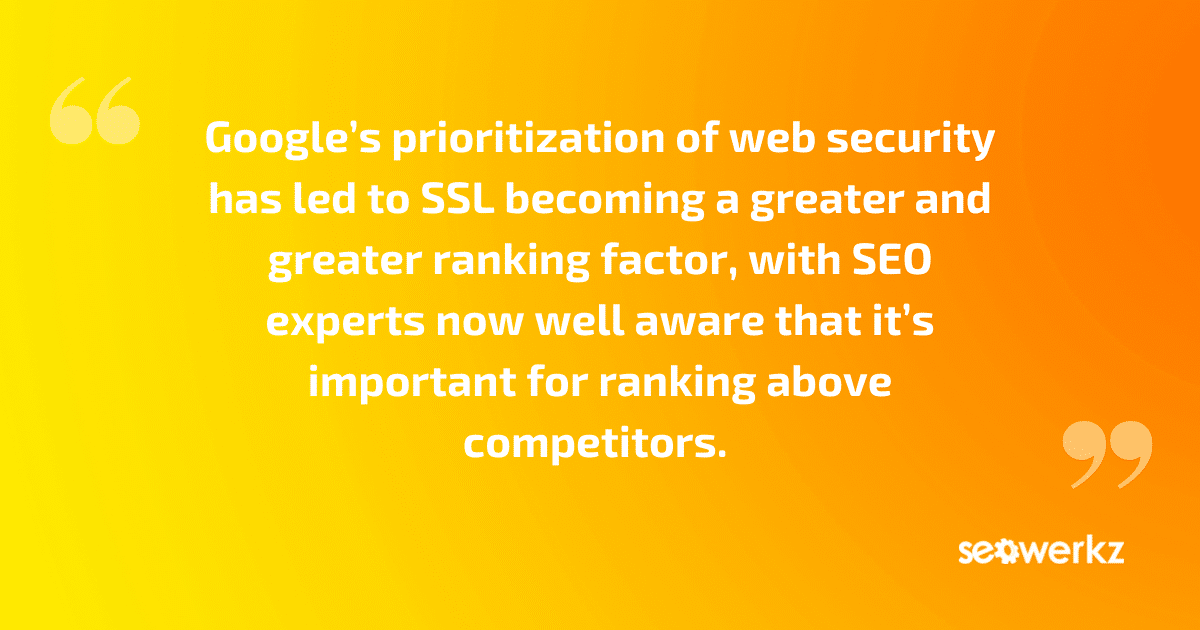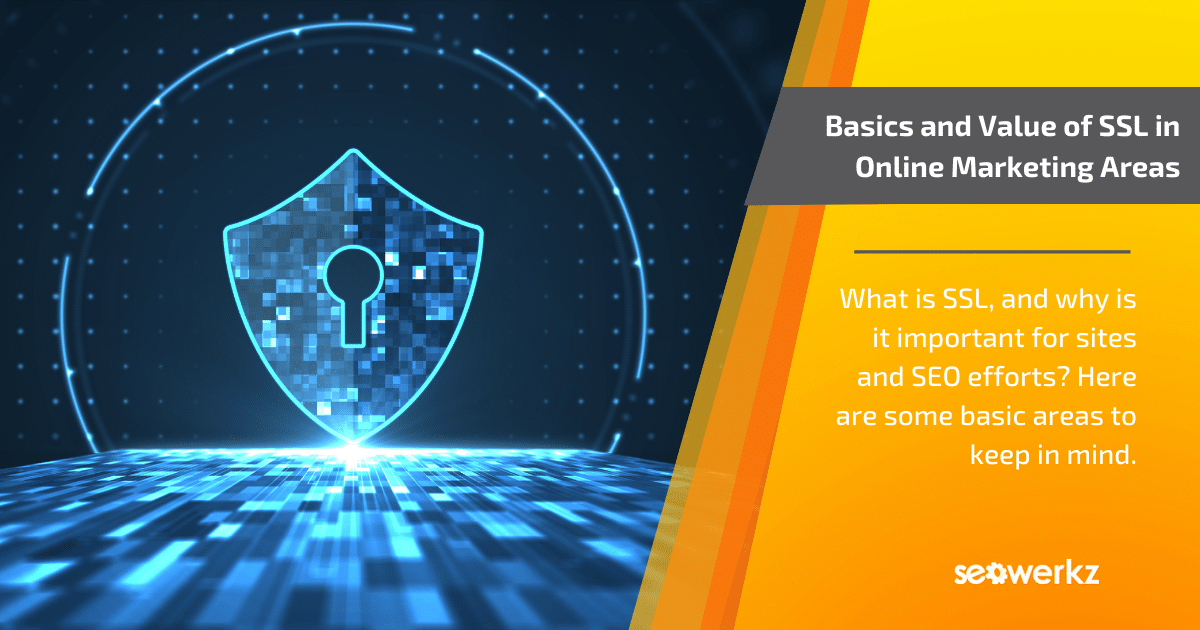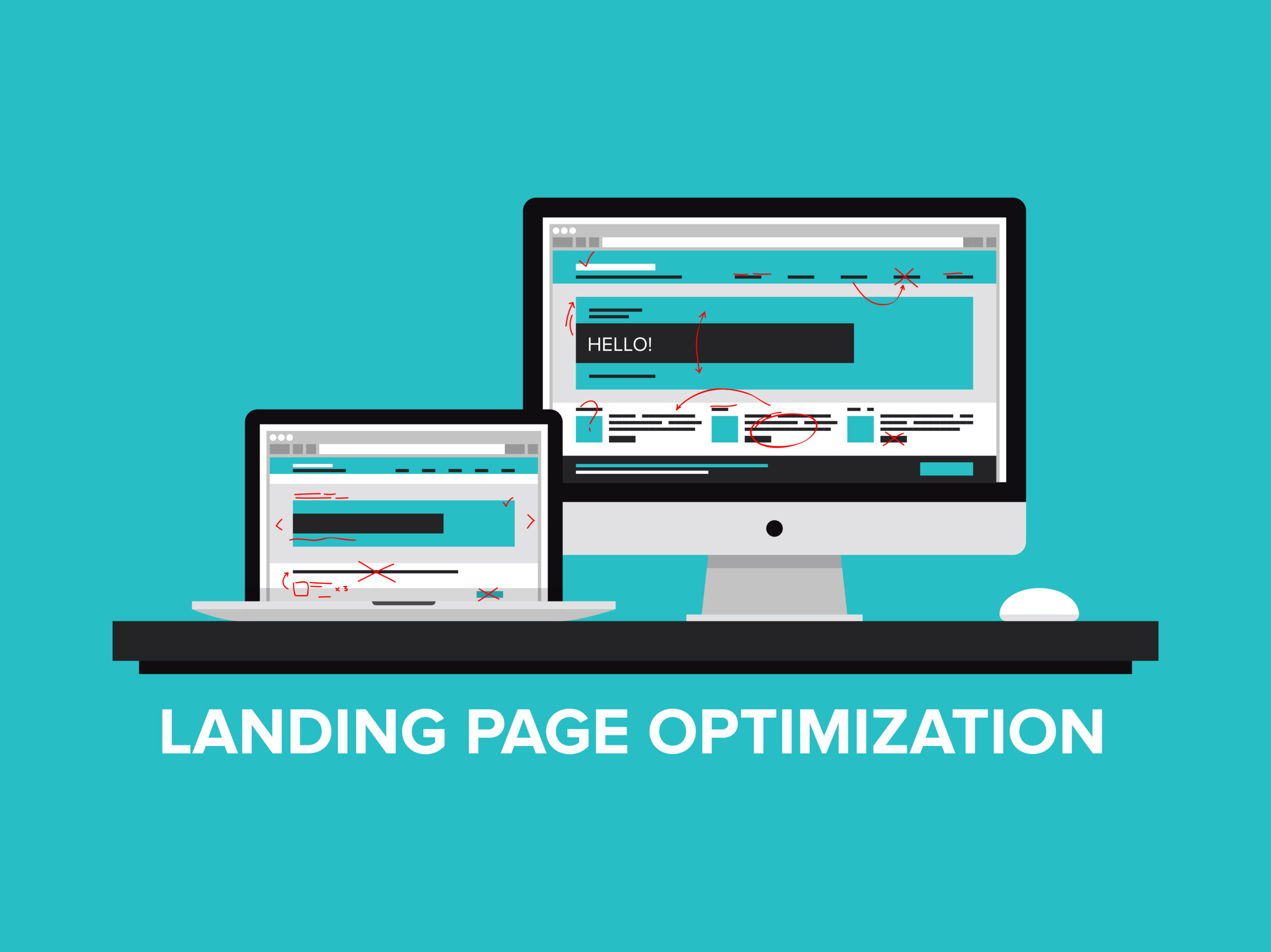Basics and Value of SSL in Online Marketing Areas
November 1, 2022There are several important factors that play some kind of interconnected role in SEO and online marketing, and one that can’t be ignored in any marketing setting is security. Web and browsing security are huge themes throughout the industry, and even leaders in the field like Google are pushing themes that will increase overall security for the average web user – and one of the key tenets of this effort involves the use of what’s known as SSL, or Secure Sockets Layer.
At SEO Werkz, we’re proud to offer numerous search engine optimization and other online marketing services, including those who want to prioritize security and related themes – plus how these themes tie into other important variables like page rankings, user experience and more. What is SSL, what other terminology does this theme often go by, and why is this a vital area not only for your site’s security, but also for rankings and related themes? Here’s a primer to help you understand.
SSL Basics and Alternative Terminology
To understand what SSL is, you first must understand what HTTPS is. Short for Hyper Text Transfer Protocol Secure, HTTPS is an updated and more secure version of HTTP – the protocol that, for decades, has been used to allow data to be sent between a browser and a given website. HTTPS and SSL, while they stand for different things, are alternative titles for the same protocol.
By adding the “S” at the end, which translates to “secure,” the operation format here changed. Instead of information being exchanged freely between these two entities, all such data and exchange formats will be completely encrypted. Google’s publicly-stated goal is to eventually move to a point where all websites use HTTPS instead of HTTP, and they’re already well on their way to this goal, with nearly three-quarters of websites surveyed on Google Chrome using the updated version. This number will only continue to increase over the next several years, and sites still using the older HTTP will not only be out of date, but will risk both security and rankings issues.
HTTPS over HTTP
In case the above wasn’t enough to convince you, here are a couple specific reasons why you should strongly consider switching your site from HTTP to HTTPS:
- Google preference and rankings: Not only is Google pushing HTTPS, it’s doing so by wielding its might as an arbiter of the internet. HTTPS was confirmed as a Google ranking factor all the way back in 2014, and remains one to this day.
- User experience: In addition, the vast majority of web users today simply expect HTTPS and its level of security. If you do not have it, your site’s credibility could be negatively affected.
- Reminders: Users will be directly exposed to your lack of security these days – ever since 2018, Google has been marking pages without HTTPS with a highly visible warning (before this, this was only done for pages with credit card info or passwords).
Our next several sections will go over a few more reasons why the move to SSL is so vital.
Ranking Signal Development
As we noted above, SSL was introduced as a ranking signal by Google all the way back in 2014 – but at the time, it was not one of the strongest signals used. Google gave some indications that they might eventually increase its prominence, but this was not initially the case.
And over time, these indications have proved true. Especially within the last two or three years, Google’s prioritization of web security has led to SSL becoming a greater and greater ranking factor, with SEO experts now well aware that it’s important for ranking above competitors. Research has shown the same, with HTTPS corelating to higher Google search results.

Visitor Security and Unencrypted Networks
While they’re slightly less common today than several years ago, it remains the case that many people use unsecured and unencrypted networks, such as public Wi-Fi networks, for web browsing. Those using these networks are potentially exposing themselves to security threats – but this is another reason for the major push toward HTTPS protocol, or SSL. This protocol protects user data, ensuring sites are encrypted and eliminating the use of certain phishing tactics like the creation of fake websites (SSL will spot these).
Possible Roadblocks
There are a couple reasons why you might be hesitant to make the move to SSL, including the following:
- Cost concerns: Some site owners are worried about the cost of switching, whether it’s the price of a developer or webmaster, the fees for encrypting transmissions between browser and site, or others. SSL certificates may range widely in costs, from completely free up to around $1,500 per year – but instead of assuming any costs here, it’s important to check with your hosting provider for SSL options and compare them.
- Fear of rankings loss: In other cases, site owners will worry that switching to HTTPS from HTTP will lose them their existing rankings. However, due to changes made by Google in recent years, this is no longer a big concern, and the switch here is generally seamless.
Basic Tips and Requirements for SSL Implementation
Here are some general tips and requirements for implementing SSL (HTTPS) on your site:
- You need an SSL certificate for this to happen. Contact our team about acquiring one.
- Ensure your WordPress host and CDN provider supports HTTPS, plus ensure all your external services and scripts have an HTTPS version.
- Set aside significant time for the migration, which will not be brief. You may see rankings fluctuations during the migration while Google re-crawls your posts.
- Be aware that you’ll lose social share counts unless you use plugins with share recovery, so you should obtain these services in advance.
- Remember local citations, and to turn off caching plugins and CDN integration ahead of time.
For more on SSL (HTTPS) and why it’s important, or to learn about any of our SEO, PPC or other internet marketing services, speak to the staff at SEO Werkz today.






